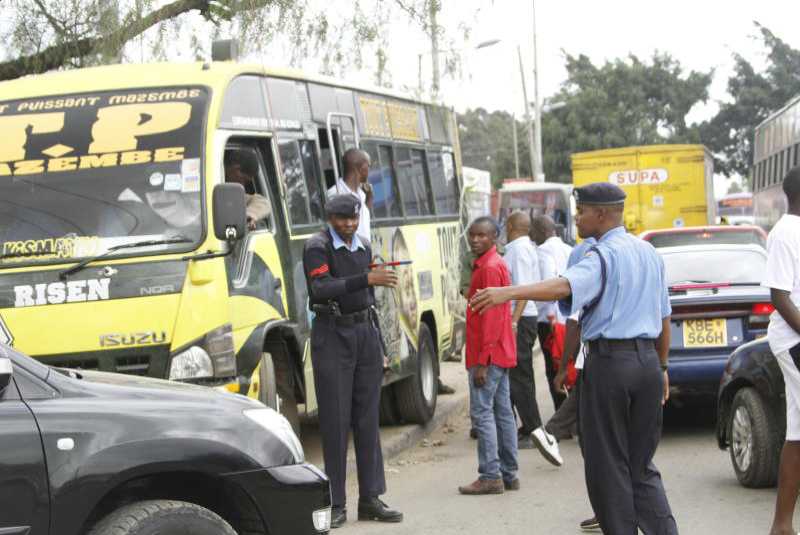×
The Standard e-Paper
Stay Informed, Even Offline

A traffic officer controls matatus plying Komarock route in Nairobi after they complained of route contravention by their matatus from other saccos. [Photo: Willis Awandu/Standard]
Public service vehicles have adopted a wait-and-see attitude as the clock ticks towards the enforcement of tough laws that could see a good number of them pushed off the road.